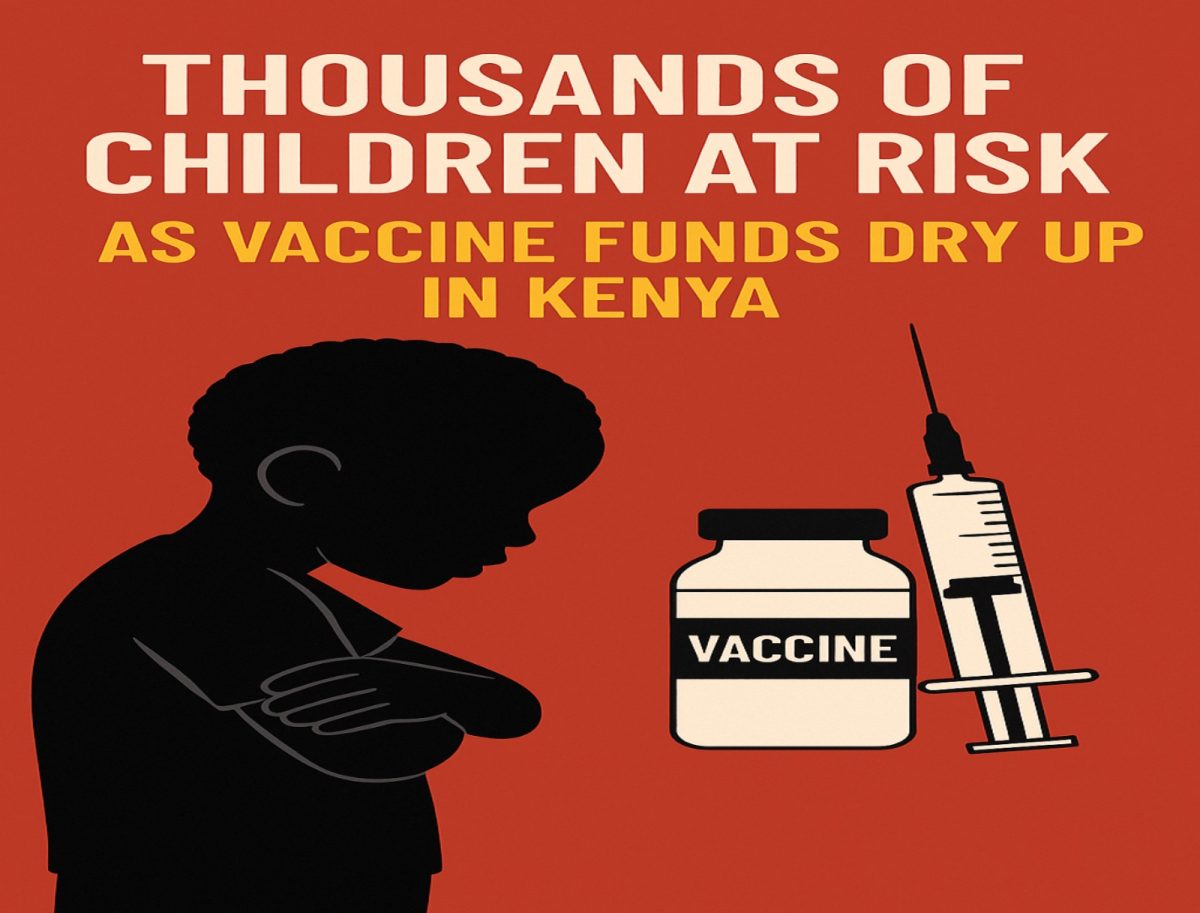Written by Yvonne Misando
Thousands of Kenyan children are under threat of a worsening health crisis as shrinking vaccine funds threaten to wipe out decades of success in preventing diseases from reaching children. According to a recent report, The Standard reported that the country’s immunisation programme is facing serious funding deficits, leaving many children at risk of missing life saving vaccines for diseases like polio, measles, tuberculosis (TB), and pneumonia.
Parents like Marianne Wanjiru, a Nairobi social worker, become increasingly anxious about the unreliable vaccine supply. Even though she is able to pay for private care for her child, she worries about all the mothers in lower income neighborhoods like Njiru, Kibera, and Embakasi, who rely solely on public health facilities, where crucial vaccines like Bacillus Calmette Guérin (BCG) for infants have been out of reach. The BCG vaccine, crucial in the protection of infants from TB, is one among a number that has experienced recurring stock outs, courtesy of a crisis in funding of Kenya’s immunisation programme.
Statistics from the Ministry of Health reveal a troubling rise in childhood TB cases: at least 139,000 people contracted tuberculosis in Kenya during 2023, with 17,000 of them children. The country has also experienced occasional measles outbreaks, and thus the urgent need for guaranteed vaccine availability. Shortages last year affected vaccines for BCG, measles, polio, rotavirus, and tetanus leaving newborns unprotected against six major childhood killers.
Kenya’s budget for immunization has stood at Ksh.4.6 billion for the past three years despite increasing needs in the country. Government funding covered only 21% to 50% of routine immunisation costs between 2017 and 2022, with the remainder heavily reliant on donor support, particularly from Gavi, the Vaccine Alliance. But now that Kenya has been downgraded to a lower-middle-income economy, it is expected to gradually transition to fully domestic funding for vaccines by 2029, a transition that is proving difficult.
For the 2024–2025 fiscal year, Kenya is required to contribute USD $12.49 million (about Ksh.1.6 billion) as part of its co-financing agreement with Gavi, but as of May 2025, no payments have been made .The entire amount is due by June 30, 2025, and failure to meet this deadline could lead to nationwide vaccine stock outs, with a three month lead time required between payment and delivery. Experts warn that delays in funding are already lowering immunisation rates and leaving children vulnerable to preventable diseases such as diarrhoea, polio, measles, and pneumonia.
The World Health Organization (WHO) estimates that 4.4 million deaths are saved by immunisation every year globally. It takes 12,086 to completely immunize a child in Kenya. Yet, due to the available funding gap, millions of children are at risk of missing out on these vital injections. In 2022, some babies succumbed after there was a shortage of the rotavirus vaccine, which is crucial in preventing deadly diarrhoea.
Health activists and civil society groups now urge the National Treasury to expedite disbursement of Kenya’s co-financing for vaccines to avoid catastrophic disruptions in immunisation efforts. They warn that further delays could reverse hard won gains and lead to an increase in preventable child deaths.
With every tick of the clock leading up to the June 30 deadline, the future of Kenya’s children remains uncertain. Unless the government moves quickly to commit to stable vaccine funding, the country will experience a public health setback that risks destroying an entire generation.

